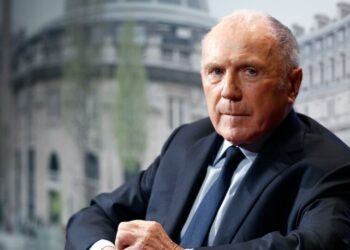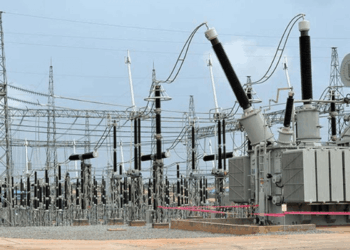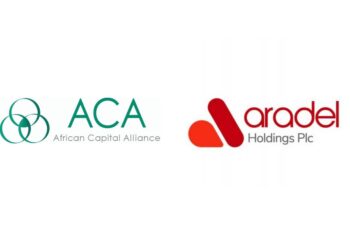Article summary
- Nigeria’s inflation rate rose to 22.04% in March 2023, the highest since 2009, according to a recent Consumer Price Index report released by the National Bureau of Statistics (NBS).
- The continuous rise in the inflation rate poses challenges for the central bank’s monetary policy strategy and indicates key structural challenges in the Nigerian economy, particularly in areas such as food, housing, and petrol.
- The central bank is likely to continue monetary policy tightening, focusing on reducing the money supply in the economy, and yields on fixed-income securities are expected to rise in the short term.
Nigeria’s inflation rate rose to 22.04% for the month of March 2023 higher than the 21.91% reported for the month of February 2023.
This is according to the recent Consumer Price Index report released by the National Bureau of Statistics (NBS).
Last year, Nigeria’s inflation rate for the month of March was 15.92% forcing the central bank to commence monetary policy tightening. Meanwhile, on a month-on-month basis, the inflation rate for March rose by 1.86% up from 1.71% recorded for the month of February 2023.
Significance
At 22.04%, this is the 9th highest inflation rate ever recorded in Nigeria since 2005 and the 21st since January 1996 when the data has been accurately captured and reported.
However, it is the highest since 2009 when the current consumer price index basket was adopted.
The continuous rise in the inflation rate piles pressure on the central bank’s monetary policy strategy which has chosen to increase monetary policy rates and limit physical cash in circulation as a two-pronged approach to combating inflation.
While money in circulation has reduced drastically, the money supply remains relatively high at over N53 trillion meaning that Nigeria continues to hold a significant hoard of quasi-cash.
Core inflation
Core inflation, which strips out the volatile food inflation printed at 19.86% the highest ever (since this CPI basket was designed).
- Core inflation first touched 19% in January before decelerating to 18.84% in February 2023. On a month-on-month basis, the Core inflation rate was 1.84% in March 2023, up by 0.78% from 1.06% in February 2023
- The highest increases were recorded in prices of Gas, Passenger transport by Air, Liquid fuel, Fuels, and Lubricants for personal transport equipment, Vehicles spare parts, Maintenance, and repair of personal transport equipment, Medical services, Passenger transport by road, etc.
Food inflation
Meanwhile, the volatile food inflation rose slightly to 24.45% for the month of March 2023, higher than the 24.35% reported in the month of February 2023. This is also the highest food inflation rate on record.
- On a month-on-month basis, the food inflation rate in March 2023 was 2.07%, this was 0.16% higher compared to the rate recorded in February 2023 (1.90%).
- The rise in food inflation on- year on year basis was caused by increases in prices of Oil and fat, Bread and cereals, Potatoes, Yam and other tubers, Fish, Fruits, Meat, Vegetables, and Spirits.
Drivers of inflation rate
According to information from the NBS, the contributions of items on the divisional level to the increase in the headline index are food & non-alcoholic beverages (11.42%); housing, water, electricity, gas & other fuel (3.69%); clothing & footwear (1.69%).
Others include transport (1.43%); furnishings, household equipment & maintenance (1.11%); education (0.87%); health (0.66%); miscellaneous goods & services (0.37%); restaurant & hotels (0.27%); alcoholic beverage, tobacco & kola (0.24%); recreation & culture (0.15%) and communication (0.15%).
The month of March was dominated by electioneering, voting for the state governors, and the state house of assembly. Nigerians also grappled with fuel scarcity and cash shortages until the Supreme court ruling that forced the central bank and the federal government to relax the naira redesign policy.
What this means
The level of inflation continues to rise despite the central bank’s monetary policy tightening over the last year. In February, Nigeria’s central bank increased its benchmark monetary policy rate to 18%.
In the monetary policy communique, where the apex bank cited the inflation rate a whopping 14 times, its outlook expressed concerns over the continued upward pressure on inflation, the rising cost of debt and debt servicing, as well as deteriorating fiscal balances remain headwinds, which it claimed may undermine the smooth path to a faster recovery.
However, the continuous rise in inflation suggests key structural challenges remain in the Nigerian economies, especially in areas like food & non-alcoholic beverages, housing, water, electricity, and petrol.
With the inflation rate now at 22.04% the central bank is likely to continue monetary policy tightening focusing on sucking out money from the economy. We expect yields on fixed-income security to keep rising in the short term. Nairametrics reported yields rose to 17% at the most recent auction.
























